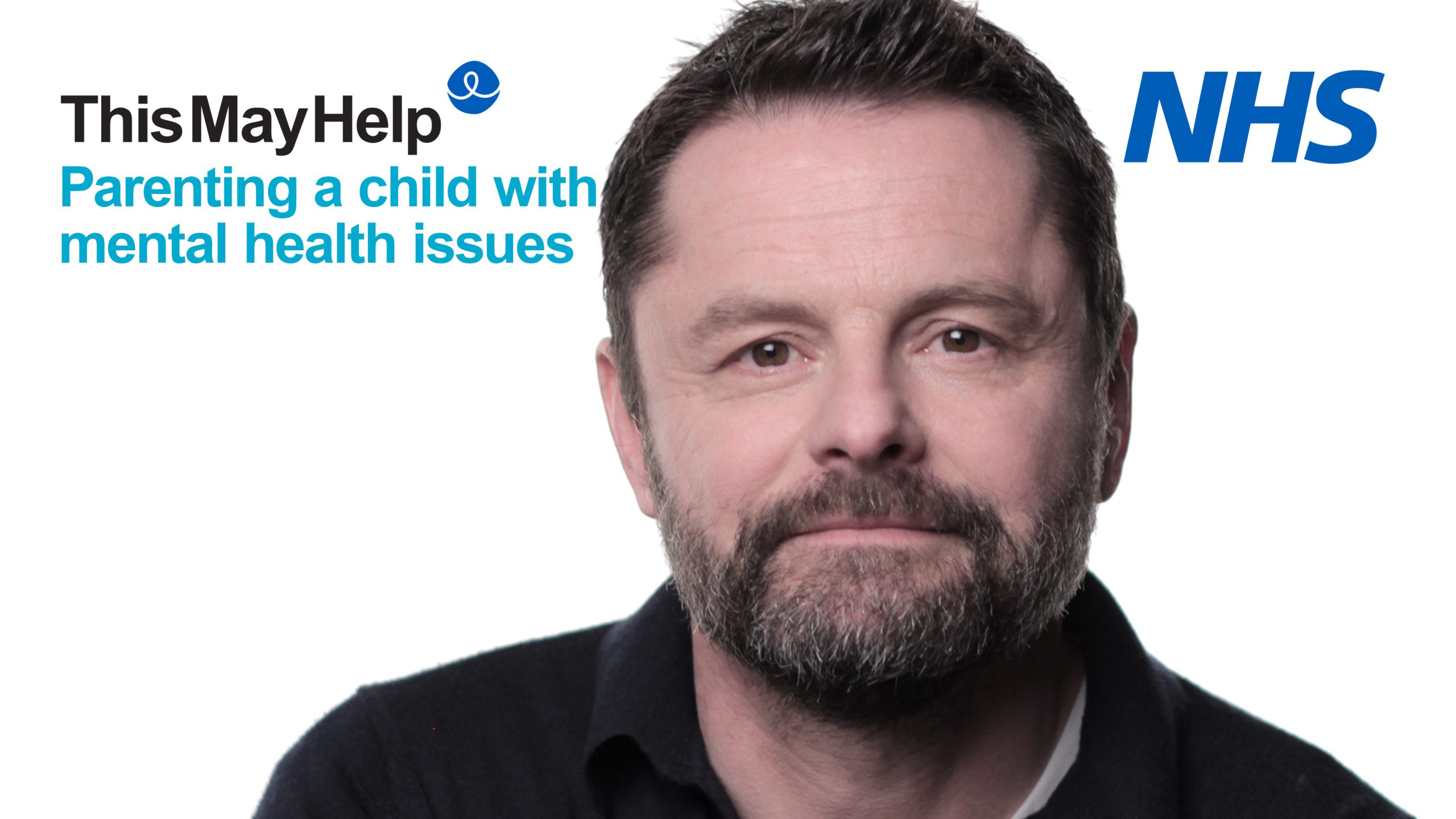Adolescence can be a difficult time and young people generally don’t have the experience, confidence, or know-how to brush off what an adult might consider trivial issues, but to them can be deeply stressful challenges. As parents it’s our job to support children in making the transition into adulthood, which includes helping them to overcome some of the emotional hurdles that might impact their mental health.
In this video Chris Hollins shares some advice from NHS mental health professionals for parents wanting to know how to support a child experiencing mental health issues.

Be patient, supportive and understanding
Mental health issues are far more common than most people realise, but they’re also a lot more complex and harder to fix than physical health issues and require patience, support and understanding.
Mental health issues often bring with them behaviours that can seem difficult to understand, but behind those behaviours there is usually some form of emotional distress. It’s important for parents to recognise this and avoid being judgemental.
Advice for parents supporting a child with mental health issues
- Remember some of the challenges you went through as a teenager and how much harder you found them to deal with than you perhaps would now.
- If they have had a diagnosis or their behaviour is associated with a common and recognisable mental health disorder, learn as much as you can about it as this will help you to better understand the child’s behaviours and needs, and make you better equipped to recognise signals.
- Share any information or advice with other family members to enable them to understand and be supportive too.
- Try to stay positive. Difficult times are when we tend to learn the most. Try to view challenges and mistakes as part of a learning curve where each experience is making you better prepared for future challenges.
- Remember that you’re only human. Don’t be too harsh on yourself for getting things wrong.
Things to avoid when having a conversation about mental health
- Try to avoid being judgemental, making accusations or generalising behaviours with phrases like ‘you always…’, or ‘you never…’. It’s better to start conversations with phrases that begin with the word ‘I”, such as ‘I’ve noticed’, or ‘I’m concerned about…’
- Sitting across a table can feel like an interrogation. It’s better to talk on walks or journeys when you’re both heading in the same direction.
- Don’t go rushing in with all the answers if they begin to open up. Just being there and listening to what they have to say can make a big difference.
Don’t let the mental health issue define the child or your relationship
Try to look for meaning in what’s happening and discuss together the feelings they’re experiencing to see if you can connect them back to what might be triggering them.
Tips for keeping the family together through mental health challenges
- By talking and, above all, listening you’ll learn about the issues, about what triggers them and what helps to ease them. This will make it easier to get through difficult moments together.
- Some families have found that treating the mental health problem as if it were the child’s disruptive best friend, recognising its personality and even giving it a name, has helped them to understand it, accept it and to set some shared boundaries.
- Encouraging the family to eat meals and do activities or games together can help to strengthen the family bond and help the child to feel less isolated. But don’t force the issue if doing so might represent an additional stress.
Try to promote a healthy lifestyle
It’s well known that physical health and mental health go hand in hand, so eating healthily, taking regular exercise, and going to bed at a reasonable hour to get a good night’s sleep need to be a priority when it comes to finding solutions.
Tips for maintaining a healthy lifestyle
- Establish a healthy sleep pattern that allows for around 8 hours of sleep and involves going to bed and waking up at the same time every day. This connects us with our natural circadian rhythms and is ideal for developing brains.
- It’s not just what we eat that matters, but also when. Establishing a routine based around three meals a day at regular times and incorporates a healthy, balanced diet, helps to promote not just physical but also mental health.
- Equally important are daylight and fresh air. Going without them for lengthy periods can have a negative impact on physical and mental health, so try to incorporate exercise and time outside into the daily routine if possible.
Remember that you’re not alone
The most important thing to remember is that you don’t have to go this alone, and that it’s okay to ask for help. A good starting point will be your GP or local medical centre if you have one and they may be able to put you in touch with professionals who can give you the support you need.
Advice on where to reach out for help.
- Your GP or local health centre will be able to refer you to specialist professionals, useful resources and support groups in your area.
- Visit our dedicated page for advice on building a support network
- Young Minds is a charitable organisation focused on young people’s mental health, offering training resources, support and advice.
Some additional resources that may help.
- NHS advice for supporting the mental wellbeing of others. Better Health: Every Mind matters
- For information on how to access NHS Mental health services click here
- Mind.org offers dedicated advice about parenting a child with a mental health problem
- Happy Maps has reliable resources recommended by parents and professionals